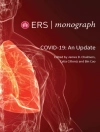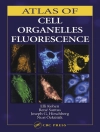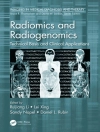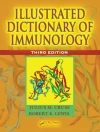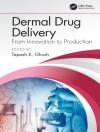<p><strong>The definitive book on reverse shoulder arthroplasty from leading orthopaedic shoulder surgeons</strong></p><p>This masterful book from top experts provides clinical insights on reverse shoulder arthroplasty gleaned from hands-on refinement of shoulder replacement techniques. Years of significant biomechanical and clinical research yielded invaluable knowledge that led to important improvements in functional outcome and implant durability. Among these refinements were stronger polyethylene derivatives, better ingrowth technology, and improved connection devices. As the durability and longevity of implant technology increased, younger active patients became suitable candidates for this procedure. In fact, RSA has played a pivotal role in making shoulder arthroplasty the fastest growing implant technology.</p><p>In the first two sections, the authors take the reader through the history and evolution of RSA, followed by step-by-step surgical techniques for specific injuries and conditions. The next three sections discuss past and recent outcomes, complications, and rehabilitation. The last section covers special considerations including patient specific instrumentation, convertible humeral and glenoid components, and the future potential of stemless humeral technology.</p><p><strong>Key Features</strong></p><ul><li>The latest trends in patient-specific components, guide systems, and instrument design</li><li>The use of RSA for rotator cuff repair, shoulder arthritis, and acute and complex fractures</li><li>In-depth discussion of techniques to improve deltoid function, avoid impingement, and increase implant longevity</li><li>Clinical pearls on how to recognize and handle complications that occur: instability, infection, scapular notching, component loosening, glenoid and humeral bone loss, and RSA failure</li><li>High quality videos and 300 superb illustrations further delineate techniques</li></ul><p>This book is a practical resource that enables learning complex procedures, putting them into practice, and handling complications should they arise. It is an essential tool for all orthopaedic surgeons who treat shoulder conditions.</p>
Table des matières
<p><strong>The Basics</strong><br>1. History of Reverse Shoulder Arthroplasty<br>2. Reverse Total Shoulder Arthroplasty: Biomechanics and Design Challenges<br>3. Evolution of Glenosphere and Baseplate Technology in Reverse Total Shoulder Arthroplasty<br>4. Evolution of Humeral Component Technology in Reverse Shoulder Arthroplasty<br>5. Emerging Indications for Reverse Total Shoulder Arthroplasty<br><strong>Surgical Techniques</strong><br>6. Preoperative Work-up and Surgical Approaches for Reverse Shoulder Arthroplasty<br>7. Debate: Approaches to Reverse Shoulder Arthroplasty: Deltopectoral Approach versus Superior Approach<br>8. Indications and Techniques of BIO-RSA for Cuff Tear Arthropathy, Including Associated Soft Tissue Transfers for Loss of External Rotation<br>9. Debate: I Always Repair the Subscapularis Tendon If Possible versus the Subscapularis Tendon: A Vestigial Structure Following Reverse Total Shoulder Arthroplasty?<br>10. Reverse Shoulder Arthroplasty for Acute Fracture: Indications and Technique<br>11. Reverse Shoulder Arthroplasty for Fracture Sequelae: Indications and Technique<br>12. Debate: Hemiarthroplasty or Reverse Shoulder Arthroplasty for Proximal Acute Complex Humeral Fractures<br>13. Reverse Shoulder Arthroplasty for Massive Anterosuperior Rotator Cuff Failure<br>14. Reverse Shoulder Arthroplasty for Osteoarthritis with Walch B2 Glenoid: Indications and Specific Technical Considerations<br>15. Reverse Shoulder Arthroplasty in Revision Shoulder Arthroplasty: What I Look for and How I Do It<br><strong>Results of Reverse Shoulder Arthroplasty</strong><br>16. Historic and Recent Results of Reverse Shoulder Arthroplasty<br><strong>Complications of Reverse Shoulder Arthroplasty</strong><br>17. Instability after Reverse Total Shoulder Arthroplasty: Evaluation and Treatment<br>18. Infection after Reverse Shoulder Arthroplasty:Workup, Diagnosis, and Treatment<br>19. Scapular Notching: Is It a Problem? How Do We Prevent It?<br>20. Component Loosening: What Can Be Done to Prevent and Treat It<br><strong>Rehabilitation</strong><br>21. Reverse Total Shoulder Arthroplasty Rehabilitation and Activities<br><strong>Special Considerations</strong><br>22. Patient-Specific Instruments and Implants in Reverse Shoulder Arthroplasty<br>23. Debate: Patient-Specific Instrumentation Is Necessary versus It Is Not Necessary in All Cases<br>24. How I Deal with Humeral Bone Loss in Reverse Shoulder Arthroplasty<br>25. Dealing with Glenoid Bone Loss in Reverse Shoulder Arthroplasty<br>26. Convertible Humeral Components in Reverse Shoulder Arthroplasty<br>27. Stemless Humeral Technology in Reverse Shoulder Arthroplasty: Is It the Next Frontier?<br>28. The Use of Convertible Glenoid Component Makes Revision to Reverse Total Shoulder Arthroplasty Easier<br>29. What Can Be Done When a Reverse Shoulder Arthroplasty Fails?</p>


